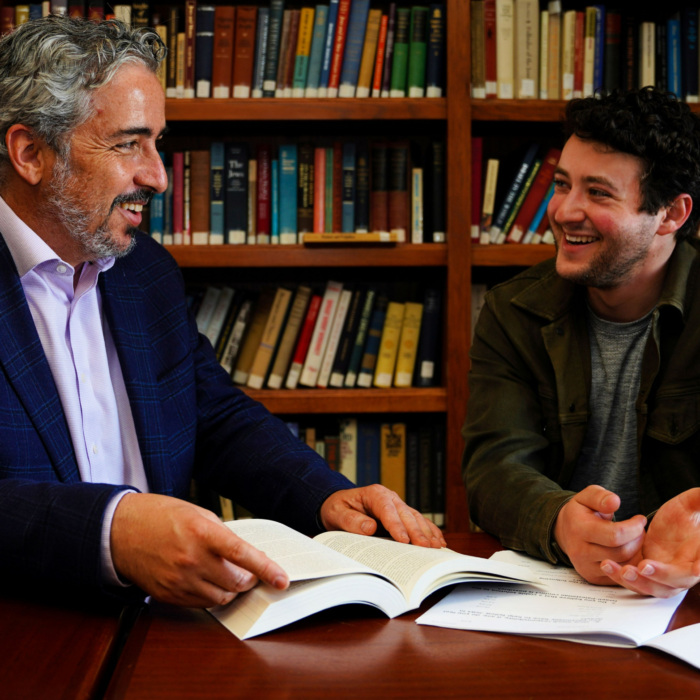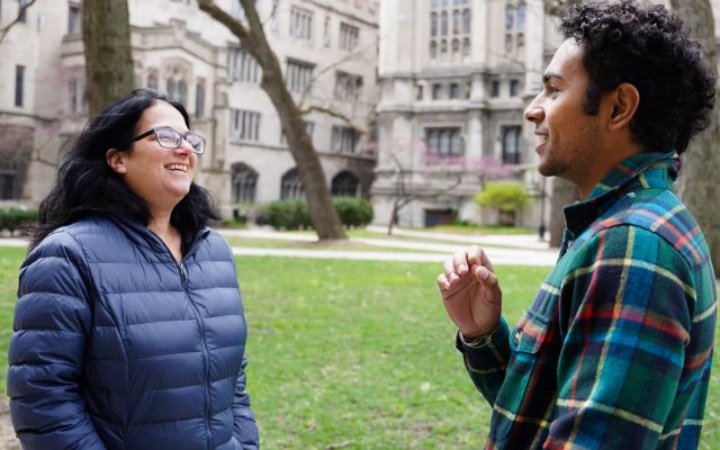In-person courses may be intensive or span a full semester. Intensive courses must include a minimum of 30 classroom hours over at least 10 distinct days of instruction. In-person grant amounts are $10,000 per class for courses in countries that are members of the Organization for Security and Co-operation in Europe (OSCE) & $12,000 per course in nonmember countries.
Online courses must span the full semester. Grant awards for online courses are $5,000.
Preference is given to applicants who have invitations to teach at public universities.
NOTE: In Poland we only work with Jagiellonian University and University of Warsaw, in Romania we only work with the National University for Political Science and Public Administration, and in the Czech Republic we only work with Charles University.
- Eligibility
- Program Requirements
- How to Apply
- Invitation
Applicants must have a fully completed doctoral degree and a position (or be emeritus) at an Israeli college or university.
Applicants must have an invitation to teach courses about Israel at colleges and universities outside of Israel and the United States.
This is a selective program; the Israel Institute does not guarantee placement to those who apply.
Faculty members must teach courses that are focused on Israel. Courses may be in any discipline, but to be considered Israel-focused at least sixty percent of the topics and readings must be about Israel.
Proposed courses must be offered at the undergraduate level, take place in person, meet on at least 10 distinct days, contain at least 30 classroom hours, and be for credit. Grants do not support graduate courses.
Grant recipients are not employees of the Israel Institute and must coordinate hiring with a university. Grant recipients should plan to cover their own expenses including, but not limited to, living expenses, taxes, health insurance, travel expenses, bench fees, etc.
Israel Institute grants do not pay for college/university administrative costs, fees, overhead, or indirect costs.
Finding a school
The first step in seeking a grant through the International Courses program is to find a school outside of the United States, Canada, and Israel interested in hosting you and running an undergraduate course about Israel.
We prioritize applicants who have invitations from universities that are NOT member states of the Organization for Security and Co-operation in Europe (OSCE).
You may start your application before you have an invitation, but you will need a formal invitation from the school before submitting your application.
Online Application
Once you click on the “Apply Now” button below, please make sure you select the correct program and application that corresponds to the correct semester in which your course will run.
Applications are accepted on a rolling basis, but you must submit your application at least five months before the first day of class.
The application asks questions about you, the host university, and your proposed course.
The application also requires:
- A high-resolution headshot (300 ppi);
- A short bio;
- An academic curriculum vitae (CV);
- The title, course description, and a list of ten topics you will cover in the course you propose to teach; and
- An invitation from a host university.
Invitation requirements
Invitations should be on university letterhead and include the following information:
- The name of the Israel-focused course the applicant will teach;
- The dates the host school will offer the class, the number of days the class will meet, and the total contact hours for the class;
- Certification that the course will be offered for credit, in person, and at the undergraduate level;
- A promise to sponsor a faculty visa if necessary; and
- A promise to make an effort to ensure robust enrollment.
Scholars need a formal invitation before grants are awarded.
Download a sample letter to request an invitation from a university or a customizable template that a host university can use to write their invitation.

